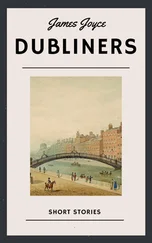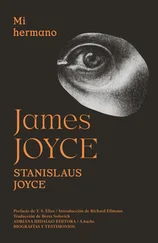James Joyce - Dubliners
Здесь есть возможность читать онлайн «James Joyce - Dubliners» весь текст электронной книги совершенно бесплатно (целиком полную версию без сокращений). В некоторых случаях можно слушать аудио, скачать через торрент в формате fb2 и присутствует краткое содержание. Год выпуска: 2001, Жанр: Классическая проза, на английском языке. Описание произведения, (предисловие) а так же отзывы посетителей доступны на портале библиотеки ЛибКат.
- Название:Dubliners
- Автор:
- Жанр:
- Год:2001
- ISBN:нет данных
- Рейтинг книги:4 / 5. Голосов: 1
-
Избранное:Добавить в избранное
- Отзывы:
-
Ваша оценка:
- 80
- 1
- 2
- 3
- 4
- 5
Dubliners: краткое содержание, описание и аннотация
Предлагаем к чтению аннотацию, описание, краткое содержание или предисловие (зависит от того, что написал сам автор книги «Dubliners»). Если вы не нашли необходимую информацию о книге — напишите в комментариях, мы постараемся отыскать её.
Dubliners — читать онлайн бесплатно полную книгу (весь текст) целиком
Ниже представлен текст книги, разбитый по страницам. Система сохранения места последней прочитанной страницы, позволяет с удобством читать онлайн бесплатно книгу «Dubliners», без необходимости каждый раз заново искать на чём Вы остановились. Поставьте закладку, и сможете в любой момент перейти на страницу, на которой закончили чтение.
Интервал:
Закладка:
He was much older than she. His conversation, which was serious, took place at intervals in his great brown beard. After the first year of married life, Mrs Kearney perceived that such a man would wear better than a romantic person, but she never put her own romantic ideas away. He was sober, thrifty and pious; he went to the altar every first Friday, sometimes with her, oftener by himself. But she never weakened in her religion and was a good wife to him. At some party in a strange house when she lifted her eyebrow ever so slightly he stood up to take his leave and, when his cough troubled him, she put the eider-down quilt over his feet and made a strong rum punch. For his part, he was a model father. By paying a small sum every week into a society, he ensured for both his daughters a dowry of one hundred pounds each when they came to the age of twenty-four. He sent the elder daughter, Kathleen, to a good convent, where she learned French and music, and afterward paid her fees at the Academy. Every year in the month of July Mrs Kearney found occasion to say to some friend:
"My good man is packing us off to Skerries for a few weeks."
If it was not Skerries it was Howth or Greystones.
When the Irish Revival began to be appreciable Mrs Kearney determined to take advantage of her daughter's name and brought an Irish teacher to the house. Kathleen and her sister sent Irish picture postcards to their friends and these friends sent back other Irish picture postcards. On special Sundays, when Mr Kearney went with his family to the pro-cathedral, a little crowd of people would assemble after mass at the corner of Cathedral Street. They were all friends of the Kearneys—musical friends or Nationalist friends; and, when they had played every little counter of gossip, they shook hands with one another all together, laughing at the crossing of so many hands, and said good-bye to one another in Irish. Soon the name of Miss Kathleen Kearney began to be heard often on people's lips. People said that she was very clever at music and a very nice girl and, moreover, that she was a believer in the language movement. Mrs Kearney was well content at this. Therefore she was not surprised when one day Mr Holohan came to her and proposed that her daughter should be the accompanist at a series of four grand concerts which his Society was going to give in the Antient Concert Rooms. She brought him into the drawing-room, made him sit down and brought out the decanter and the silver biscuit-barrel. She entered heart and soul into the details of the enterprise, advised and dissuaded; and finally a contract was drawn up by which Kathleen was to receive eight guineas for her services as accompanist at the four grand concerts.
As Mr Holohan was a novice in such delicate matters as the wording of bills and the disposing of items for a programme, Mrs Kearney helped him. She had tact. She knew what artistes should go into capitals and what artistes should go into small type. She knew that the first tenor would not like to come on after Mr Meade's comic turn. To keep the audience continually diverted she slipped the doubtful items in between the old favourites. Mr Holohan called to see her every day to have her advice on some point. She was invariably friendly and advising—homely, in fact. She pushed the decanter towards him, saying:
"Now, help yourself, Mr Holohan!"
And while he was helping himself she said:
"Don't be afraid! Don't be afraid of it!"
Everything went on smoothly. Mrs Kearney bought some lovely blush-pink charmeuse in Brown Thomas's to let into the front of Kathleen's dress. It cost a pretty penny; but there are occasions when a little expense is justifiable. She took a dozen of two-shilling tickets for the final concert and sent them to those friends who could not be trusted to come otherwise. She forgot nothing and, thanks to her, everything that was to be done was done.
The concerts were to be on Wednesday, Thursday, Friday and Saturday. When Mrs Kearney arrived with her daughter at the Antient Concert Rooms on Wednesday night she did not like the look of things. A few young men, wearing bright blue badges in their coats, stood idle in the vestibule; none of them wore evening dress. She passed by with her daughter and a quick glance through the open door of the hall showed her the cause of the stewards' idleness. At first she wondered had she mistaken the hour. No, it was twenty minutes to eight.
In the dressing-room behind the stage she was introduced to the secretary of the Society, Mr Fitzpatrick. She smiled and shook his hand. He was a little man, with a white vacant face. She noticed that he wore his soft brown hat carelessly on the side of his head and that his accent was flat. He held a programme in his hand and, while he was talking to her, he chewed one end of it into a moist pulp. He seemed to bear disappointments lightly. Mr Holohan came into the dressing-room every few minutes with reports from the box-office. The artistes talked among themselves nervously, glanced from time to time at the mirror and rolled and unrolled their music. When it was nearly half-past eight, the few people in the hall began to express their desire to be entertained. Mr Fitzpatrick came in, smiled vacantly at the room, and said:
"Well now, ladies and gentlemen. I suppose we'd better open the ball."
Mrs Kearney rewarded his very flat final syllable with a quick stare of contempt, and then said to her daughter encouragingly:
"Are you ready, dear?"
When she had an opportunity, she called Mr Holohan aside and asked him to tell her what it meant. Mr Holohan did not know what it meant. He said that the Committee had made a mistake in arranging for four concerts: four was too many.
"And the artistes !" said Mrs Kearney. "Of course they are doing their best, but really they are not good."
Mr Holohan admitted that the artistes were no good but the Committee, he said, had decided to let the first three concerts go as they pleased and reserve all the talent for Saturday night. Mrs Kearney said nothing, but, as the mediocre items followed one another on the platform and the few people in the hall grew fewer and fewer, she began to regret that she had put herself to any expense for such a concert. There was something she didn't like in the look of things and Mr Fitzpatrick's vacant smile irritated her very much. However, she said nothing and waited to see how it would end. The concert expired shortly before ten, and everyone went home quickly.
The concert on Thursday night was better attended, but Mrs Kearney saw at once that the house was filled with paper. The audience behaved indecorously, as if the concert were an informal dress rehearsal. Mr Fitzpatrick seemed to enjoy himself; he was quite unconscious that Mrs Kearney was taking angry note of his conduct. He stood at the edge of the screen, from time to time jutting out his head and exchanging a laugh with two friends in the corner of the balcony. In the course of the evening, Mrs Kearney learned that the Friday concert was to be abandoned and that the Committee was going to move heaven and earth to secure a bumper house on Saturday night. When she heard this, she sought out Mr Holohan. She buttonholed him as he was limping out quickly with a glass of lemonade for a young lady and asked him was it true. Yes, it was true.
"But, of course, that doesn't alter the contract," she said. "The contract was for four concerts."
Mr Holohan seemed to be in a hurry; he advised her to speak to Mr Fitzpatrick. Mrs Kearney was now beginning to be alarmed. She called Mr Fitzpatrick away from his screen and told him that her daughter had signed for four concerts and that, of course, according to the terms of the contract, she should receive the sum originally stipulated for, whether the society gave the four concerts or not. Mr Fitzpatrick, who did not catch the point at issue very quickly, seemed unable to resolve the difficulty and said that he would bring the matter before the Committee. Mrs Kearney's anger began to flutter in her cheek and she had all she could do to keep from asking:
Читать дальшеИнтервал:
Закладка:
Похожие книги на «Dubliners»
Представляем Вашему вниманию похожие книги на «Dubliners» списком для выбора. Мы отобрали схожую по названию и смыслу литературу в надежде предоставить читателям больше вариантов отыскать новые, интересные, ещё непрочитанные произведения.
Обсуждение, отзывы о книге «Dubliners» и просто собственные мнения читателей. Оставьте ваши комментарии, напишите, что Вы думаете о произведении, его смысле или главных героях. Укажите что конкретно понравилось, а что нет, и почему Вы так считаете.



